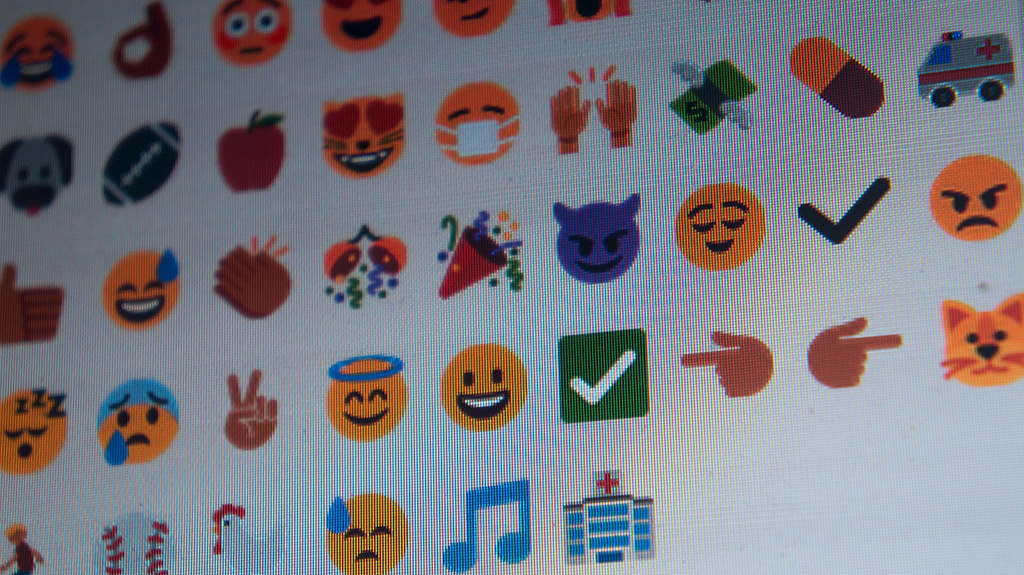“Social media and the true digital natives”
April 8th, 2016 Youth live in a tech-savvy world but Tiloma Chandrasekera, 28, a Commonwealth Correspondent from Sri Lanka now living in the UK, asks whether social media is creating a world of endless self marketing and attention seeking.
Youth live in a tech-savvy world but Tiloma Chandrasekera, 28, a Commonwealth Correspondent from Sri Lanka now living in the UK, asks whether social media is creating a world of endless self marketing and attention seeking.
Digital natives are considered to be a generation of the populace being born into digital technology, and are highly acclimatised with computers and the internet from an early age. Needless to say, most of us do belong to this somewhat unique generation. So what is so special about being born into a tech savvy community? Didn’t the baby bloomer generation wow at colour and moving pictures? Didn’t they use technology the same way we did? After all, technology is perfected by man through his thirst for knowledge. But (alas?) the digital age took a summersault and viola, social media was born.
As many of us are aware, social media platforms are used on a daily basis by the young and old alike. It is also heavily used by businesses to promote the services they offer. These businesses range from showcasing hot crossed buns of a home baker down the road to sharing corporate social responsibility projects of a multi national company.
If we think along the same line, do we use social media to promote our selves? Is it all about self promotion? Or does it fulfil some other alternative objective that we have? Many of you would argue that social networking sites are merely harmless ventures set up to reconnect with those friends that you may have lost contact with. Some of you might say that these sites have helped you to keep track of recent developments around the world. You might even go so far as to say that social media sites have brought you closer to the celebrities you adore. But is social media as innocent as it seems?
Many people enjoy their social media presence by wielding it as a form of expression. True enough, we are better able to express how we feel about certain issues in 140 characters or less, converse with a diverse audience about social issues and causes we feel passionate about, and show the same audience a glimpse of the life that we enjoy through pictures that we share.
But have you ever stopped and wondered what a “Like” means to you? Does it mean that the majority approve of the way you have expressed yourself? Should majority approval matter to YOU and shape how YOU feel and think about certain issues? On the other hand, would you feel left out if you don’t gather as many followers as possible?
These are but few of the questions that ran through my mind when I came across few profiles on social media platforms. Profiles of these young people showcased their desperation to seek approval by the highest number of “views” or “Likes”. In the same time they were bullied and body shamed, which I’m certain would have led to deteriorating levels of self worth and to emotional abuse. All this for the sake of conversation, communication and the ultimate goal of socialising.
It makes one wonder, how did we ever get by when social media was not at the tips and swipe of our fingers? How exactly did we get by? Did we enjoy the moment we saw that perfect sunset on a golden summer day that we oh so eagerly wanted to capture through our smart phones? Are young people hell bent on getting a “Like” over having one?
By now, any person using social media networks is aware that “YOUR media represents YOU”. Your life is no longer private, the digital footprint you have left behind makes it easier for anyone who may come across your name to find details about you. From your favourite colour to what you did last summer, your life is documented either with or without your consent. It is further fascinating to note that young people have succumbed to the follies of what we have fondly named “smilies” in place of actual facial expressions, body language, tone of voice and facial cues.
This is a clear indication that young people are struggling to understand emotional intelligence over key board characters. To make things worse, young people mostly communicate with these “smilies”, often under a “selfie” that promotes nothing but self centred vanity. All these lead to the creation of an alter social media personality in real life.
In conclusion, suffice to state that whilst social media has brought positive impact on the lives of those it caters to, the influence it has over young people is somewhat questionable. Has it brought out traits of attention-seeking vulnerability, or has it opened our eyes into worlds of unknown that we’ve never ventured into before?
I’ll let you decide with the most number of “Likes” to this article ;)!
photo credit: Twitter Emojis via photopin (license)
………………………………………………………………………………………………
About me: I am an Attorney-at-Law and lecturer with a diverse legal practice. Whilst practising predominantly in the field of industrial relations and employment, I also handle commercial litigation, arbitration, and appeals. Presently I am a Master’s Candidate in Human Rights at the University of Colombo. My interest areas include youth empowerment and democratic participation.
In the future, I plan to continue further studies and practice as a counsel. Words I live by are “Carpe diem”.
…………………………………………………………………………………………………
Opinions expressed in this article are those of the author and do not necessarily represent the views of the Commonwealth Youth Programme. Articles are published in a spirit of dialogue, respect and understanding. If you disagree, why not submit a response?
To learn more about becoming a Commonwealth Correspondent please visit:
http://www.yourcommonwealth.org/submit-articles/commonwealthcorrespondents/
…………………………………………………………………………………………………




